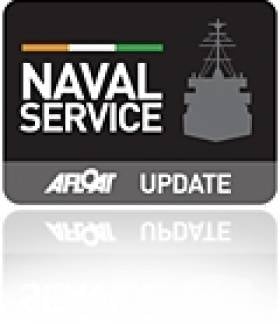Displaying items by tag: Marine and Coastwatching Service
Passing of Irish Naval Service Officer Commander
Following his retirement in September 1980 he worked with Irish Shipping Ltd for a further five years during the construction of the state-owned company ships at the Verolme Cork Dockyard. At the same dockyard, he had also been closely involved in the design and commissioning of the Naval Service's helicopter patrol vessel L.É. Eithne, its largest vessel which was built in 1984.
To read more about the distinguished career of Cdr Liam Ahern and also his wartime role in the Royal Navy, his obituary is published in today's Irish Times.
Jehan Ashmore adds that the L.É. Eithne arrived into Dublin Port this morning to dock at Sir John Rogersons Quay next to the French Navy minehunter Cassiopée (M642) and mine-route survey craft Altaïr, which have been on a visit to the capital for the St. Patrick's festivities.
At 1,760 tonnes the L.É. Eithne is not only the largest vessel of Ireland's eight-strong fleet but is also the last ship of any type built in the Republic of Ireland. For a photo of the 27-year-old ship seen off Cobh (where Cdr Ahern was born) click here.
The 80m vessel has a crew of 85 (9 Officers and 77 ratings). Her main armament is a Bofors 57mm anti-aircraft gun with a LIOD fire control system and two 20mm Rheinmetals.
In 1986 L.É. Eithne made a historic visit as the first Irish Naval Service ship to cross the Atlantic, where she sailed to the United States, visiting Hamilton, New York and Boston. A decade later she became the first Irish Naval ship to tour the continent of South America.





























































